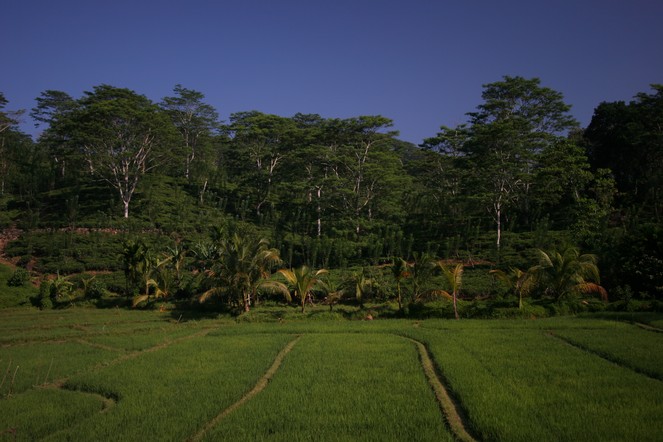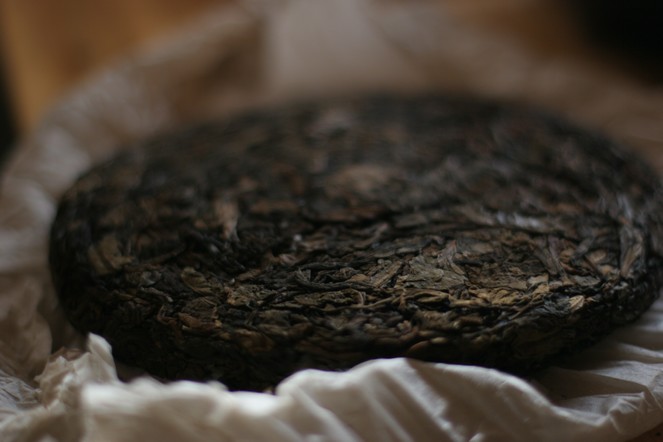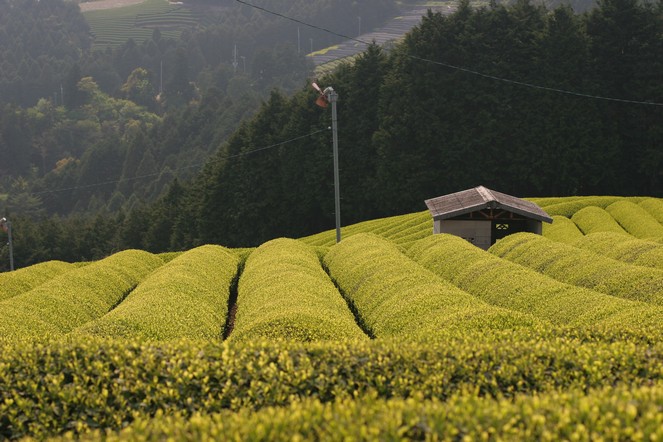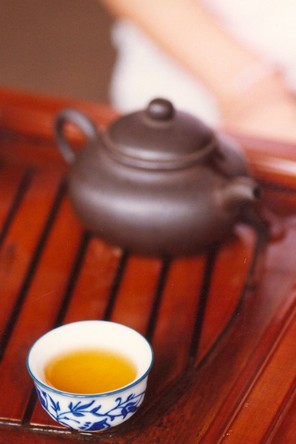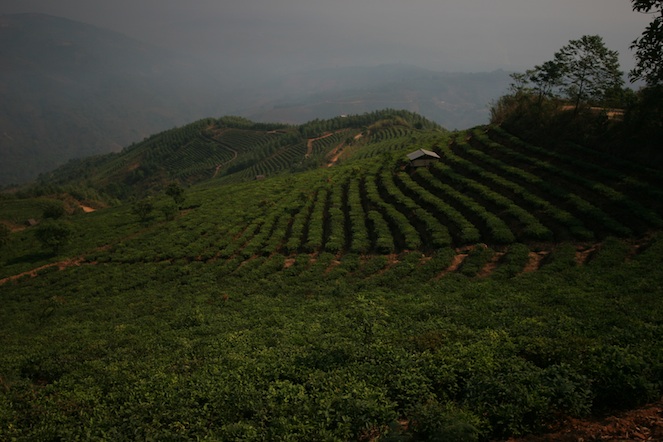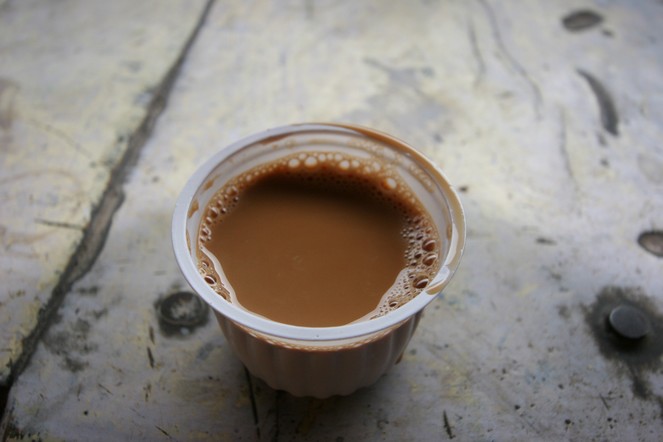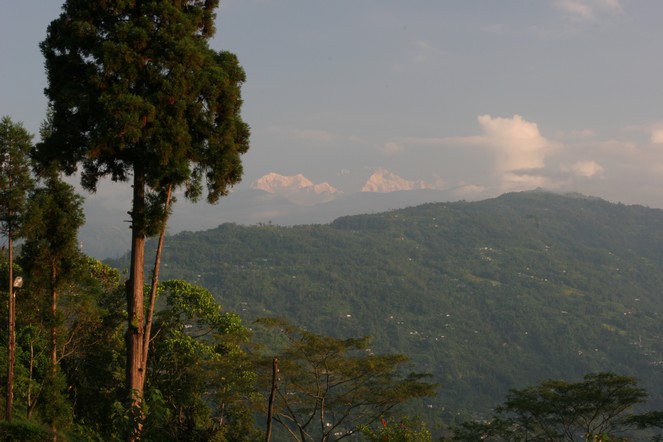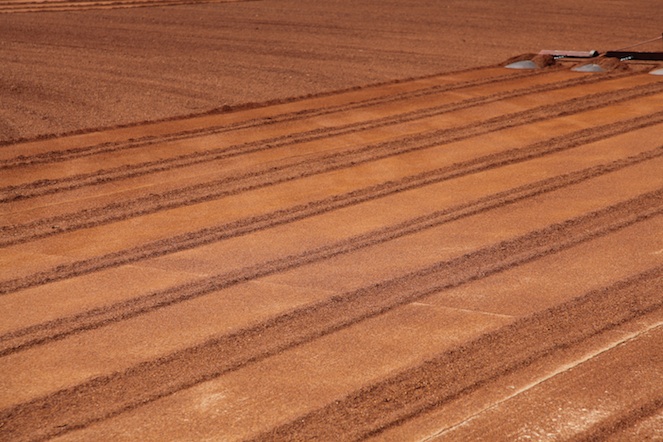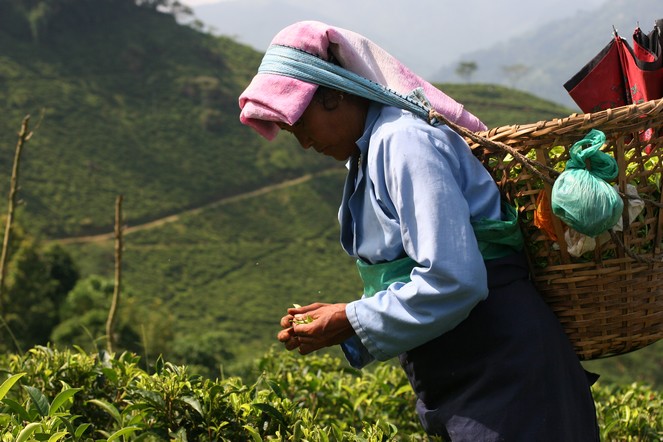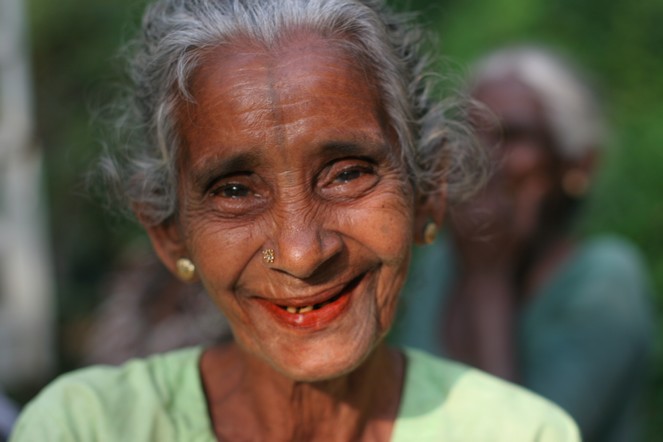Nothing looks less like a tea plantation than another tea plantation. Here, in the south of Sri Lanka, tea bushes occupy the hills beside a paddy field and other different crops. Hence these subtle and evocative tones of green and yellow.
Highly prized pu er cakes in China
2007 saw the start of a spectacular craze for pu er in China. In the space of a few weeks, this previously barely-known tea became the subject of frenzied speculation, and it took two or three years before prices came down again. Now it seems this same phenomenon is about to be repeated. Once again, the Chinese are queuing up to buy cakes of this tea, which is said to improve with age. As before, the cause is speculation. At the Canton Tea Fair, which has just taken place, we saw pu er cakes selling for over €1,000 each.
Strange shapes in the Japanese tea fields
Because tea plants don’t like frost, Japanese tea fields are populated by strange shapes. When their blades are turning at the top, these fans prevent freezing air from stagnating above the bushes.
Tasting a fine tea using the Gong Fu Cha method
To appreciate a tea as fine as the Taiwanese “Black Pearl” I recently selected, there are two options: either use your usual teapot, or prepare it according to the Gong Fu Cha method. This involves placing the tea in a very small teapot and steeping the same leaves several times in succession. It is a different way of discovering the rich aromas of this fine tea, whose fairly sweet notes make it perfect for the season.
New Palais des Thés store opens in Bordeaux
The day after the opening of the new Palais des Thés store in Bordeaux, I have chosen this photo with a nod to the region’s vineyards. I know the topography is different, but I must say that tea bushes and vines are very similar in terms of the lines they form within the landscape.
Tea: a simple, delicious and comforting drink
There are many ways to make tea and to drink it. Some ceremonies must be learnt, like the Japanese Cha No Yu. Other rituals have rules that are no less specific, like the British, Chinese, Moroccan, Tibetan and Russian customs, and many others. But we should never forget that for a quarter of the inhabitants of our planet, tea is the most simple drink there is. It is consumed without fanfare, anywhere, at any time of day or night; it is the most obvious thing in the world, both delicious and comforting; it is served in the street; it is tea, plain and simple.
Autumn landscape in Darjeeling
The autumn colours of rooibos
The tea plant is an evergreen and its leaves do not change colour when cold weather follows the summer. So, to bring you some seasonal autumn colour, I have chosen an image of rooibos leaves spread out in very thin layers to dry on the ground, as they oxidise after being watered.
Teas from the Margaret’s Hope garden
The Margaret’s Hope garden is one of the best known in Darjeeling. Its reputation is justified by the quality of its teas and also because, from time to time, this plantation products batches of a truly remarkable quality. Of course, you have to taste many samples before finding a rare gem, but that is exactly what my work entails: drinking large quantities of different teas every day.
Last spring I bought a batch from Margaret’s Hope that I am sure you remember if you were lucky enough to taste it. The planter called it White Delight. And I have just chosen a Margaret’s Hope DJ512 which has such an incredible floral bouquet it is worth the detour too. For connoisseurs, it comes from the varieties P312 and AV2.
Keeping tea
The optimal storage period can vary a great deal from one tea to another. Green teas from Japan and China do not last long, and just a few months after harvest the difference in flavour is noticeable. The same goes for first flush Darjeelings. On the other hand, what are known as dark teas, the famous Pu Ers, get better with age. Lastly, many black teas as well as the most oxidised of the Wulongs often retain their qualities for years. Like this Nepalese plucker whose smile, charm and generosity are impervious to the passing of time.

